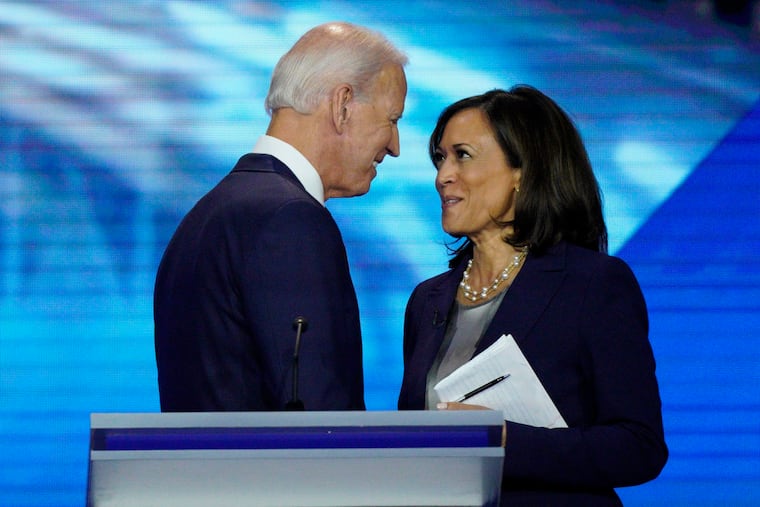Let the people elect the vice president | Opinion
There’s a better way to pick the second-in-command.

With the spotlight on Joe Biden’s running mate this week, it’s a good time to revisit the role of the vice president — and point out that the VP selection process is a mess.
I proposed some time ago that we go back to the original constitutional design, under which the candidate receiving the second-most electoral votes becomes vice president. (So the current veep would be named Clinton, not Pence.) Over the years, however, I’m wondering whether we shouldn’t think seriously about how to get voters to consider what is, after all, the primary duty of the veep: to take over at once should anything befall the president.
One way to do this might be to adopt an idea that’s been raised every now and then but never taken seriously: electing the vice president to a four-year term in the off-year election two years into the president’s term.
Seriously.
The idea would be to give the president’s party two years to show that it deserves to run the executive branch. If voters are unhappy at the end of that time, they can send a message by choosing a member of the other party to be next-in-line. Under this arrangement, there would have been a vice-presidential election in 2018, which would also have served as a referendum on Donald Trump’s presidency. Similarly, if Biden wins this year, the Republicans would have a shot at electing a vice president in 2022.
» READ MORE: Black Democrats in Pa. are ‘beaming with pride’ after Biden picks Kamala Harris for vice president
What would be the advantages? For one thing, a separate election in a different year would focus the attention of voters quite closely on the question of who ought to be a heartbeat away from the presidency. Political scientists tell us that second name on the ticket rarely has much influence on how people vote. Changing that would be a good thing.
Second, presidents would become wary of governing more radically (in either direction) than the way they campaigned. Government might actually become more cautious. Even presidents who hoped to rush through their legislative agendas in the first two years would do so with the wary recognition that the voters would shortly be choosing not only a new Congress but a new vice president.
The vice president’s sole constitutional duty is presiding over the Senate and, should the chamber divide equally, breaking the tie. That power is rarely exercised — the one time Vice President Harry Truman was called upon to vote, a reporter described him as doing so “with all the brisk eagerness of someone who is bored to death” — but should the Senate remain closely divided, the duty will be nothing to sneeze at. For this reason, it would behoove the occupant of the Oval Office not to treat the VP too shabbily, even when they come from different parties.
Moreover, the mere fact that the vice president would be chosen in an election with no one else at the top of the ticket would enhance the prestige of the office. The well-worn epigram attributed to John Nance Garner about how much warm spit the office isn’t worth might even cease to be quoted every four years.
» READ MORE: Voting starts early this year in Pennsylvania. What that means for Trump, Biden, and other campaigns.
An obvious problem would arise should the vice president want to run for the big chair. On the one hand, there would be the security of knowing that in case of defeat, the second spot was still waiting. On the other, a victory would leave the vice presidency vacant for two years. One might decide not to let vice presidents run directly for the presidency, but then we might risk having first-rate candidates pass the job by. On balance, it is probably better to let the vice president run and figure out a way to fill the position in the event that he or she wins the top job.
This proposal would, of course, require a constitutional amendment, and that alone makes its adoption unlikely. But we’re overdue for a change, not only to end once and for all the embarrassing selection process with its leaks and speculations but also to give the voting public a serious role in deciding who should be a heartbeat away from the presidency.
Stephen L. Carter is a Bloomberg Opinion columnist, where this piece originally appeared. He is a professor of law at Yale University and was a clerk to U.S. Supreme Court Justice Thurgood Marshall. His novels include “The Emperor of Ocean Park,” and his latest nonfiction book is “Invisible: The Forgotten Story of the Black Woman Lawyer Who Took Down America’s Most Powerful Mobster.”
» READ MORE: Biden is beating Trump big in Pennsylvania. Will anything change that?